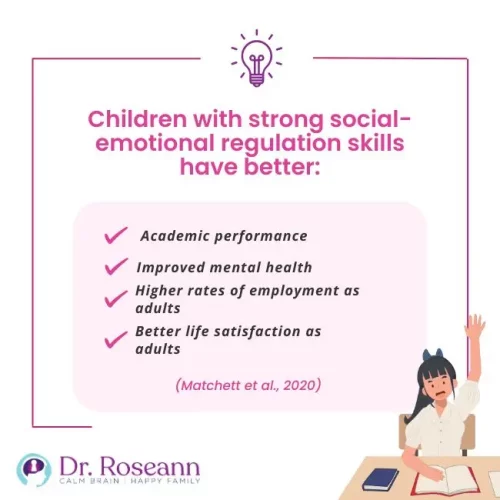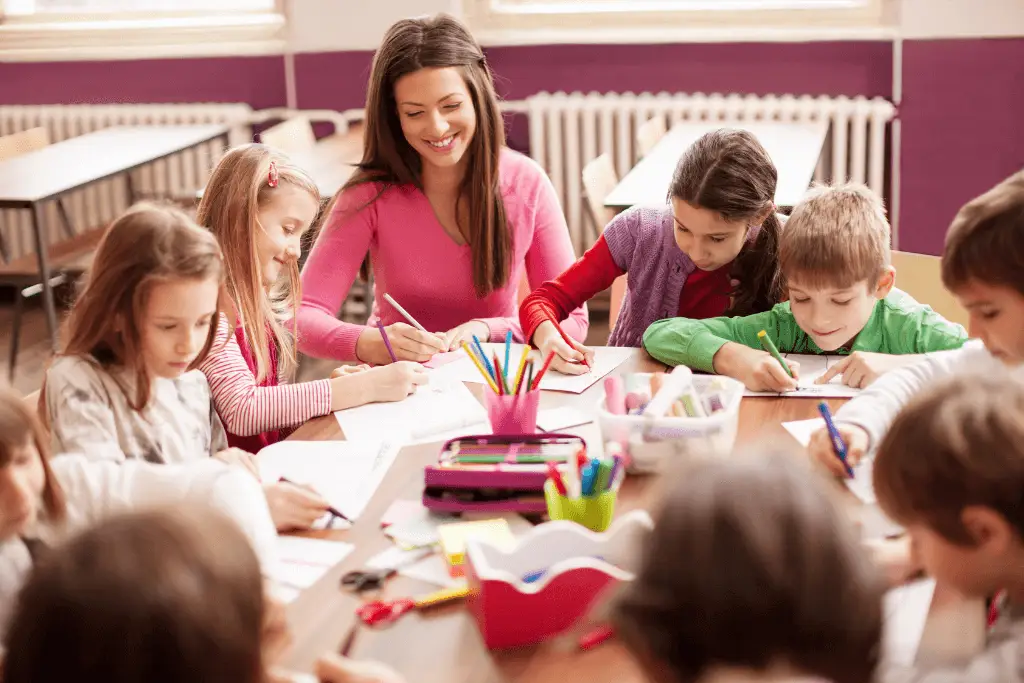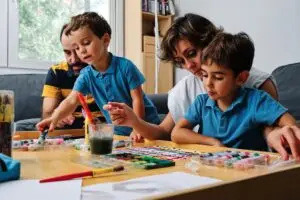Estimated reading time: 8 minutes
If your child gets overwhelmed around other kids, has meltdowns during playdates, or avoids group activities, you’re not alone. Social-emotional struggles can make everyday interactions feel impossible and exhausting for parents.
In this blog, I’ll break down what social emotional regulation really means, why some kids struggle with it, and most importantly, what you can do to support your child.
What is social emotional regulation?
Social emotional regulation is your child’s ability to manage one’s emotions in a way that supports healthy, appropriate social interactions.
It means:
- Understanding how you feel
- Knowing how to calm yourself when emotions rise
- Expressing emotions in ways others can understand
- Responding appropriately around others’ emotions
Why do some kids struggle with social emotional regulation?
Kids struggling with social emotional regulation, attention, anxiety, or neurodevelopmental conditions usually have a hard time regulating their emotions when they are in social situations.
Common reasons include:
- An over or under stimulated nervous system (dysregulation)
- Delays in the prefrontal cortex (where self-control lives)
- Poor interoception (difficulty identifying internal body signals)
- Lack of social learning experiences due to anxiety or behavior

What are the signs of poor social-emotional regulation?
If you’re unsure if your child has social-emotional difficulties, look for:
- Overreacting to small problems
- Meltdowns during group play or transitions
- Trouble taking turns or sharing
- Difficulty noticing social cues
- Withdrawal or avoidance in social settings
- Inflexibility with rules or changes
How does emotional regulation affect social skills?
The ability to connect with others relies heavily on emotional regulation. When a child is dysregulated, their ability to:
- Listen
- Think before reacting
- Problem-solve
- Handle rejection or mistakes
…goes right out the window.
That’s because a dysregulated nervous system puts the brain into “survival mode.” And in that state, logic and empathy take a back seat.
Let’s calm the brain first. Then the learning and social connection can happen.

What can parents do to help their child develop better social emotional regulation?
Supporting your child starts with supporting their nervous system.
Here’s what works:
- Model calm behavior
- Your calm helps their brain calm. This is called co-regulation.
- Practice emotional naming
- Help your child identify what they’re feeling (“You look frustrated! Do you feel like it’s unfair?”)
- Create a predictable routine
- Less stress = more capacity to regulate
- Use role-play
- Practice social scenarios in advance: “What could you say if someone takes your turn?”
- Focus on recovery, not perfection
- It’s okay if things go wrong, help your child repair and reflect after
Want to learn more coping skills for your child?
What role do the brain and nervous system play in regulation?
The brain and nervous system are like the control center for your child’s emotions and behavior.
When your child is calm, the prefrontal cortex is in charge.
This part of the brain helps them:
- Make good decisions
- Stay focused
- Show empathy
- Stay in control
But when your child is overwhelmed or upset, that thinking part goes offline.
Then the amygdala steps in.
That’s the brain’s alarm system, it’s in charge of survival. It triggers:
- Fight (yelling, hitting)
- Flight (running away)
- Freeze (shutting down)
These reactions aren’t bad behavior, they’re your child’s brain trying to protect them.
It’s often a survival response, not an intentional choice.
Are there therapies or treatments that help with social emotional regulation?
Yes, there are evidence-based approaches that work with the brain and body, not just the behavior.
Top therapies include:
- QEEG Brain Mapping – To identify dysregulated brain patterns
- Neurofeedback – To train the brain toward regulation
- PEMF therapy – For calming the nervous system (like our CALM PEMF device)
- Social skills groups – To practice and reflect on peer interaction. Find local groups where your child can go on weekly basis for their learning.
Parent coaching – To equip YOU with the tools for emotional regulation (like our BrainBeaviorResetTM program)
How can schools support children with regulation and social skill challenges?
When schools understand that behavior is communication, the right support can make a huge difference.
Effective school strategies:
- Sensory breaks and calming corners
- Social-emotional learning (SEL) programs
- Individualized accommodations (IEPs and 504s)
- Teacher training in co-regulation and neurodiversity
Parent Action Steps:
FAQs
What age should kids develop social emotional regulation?
Kids begin learning these skills in early childhood, but full development continues into the mid-20s. Some kids need extra support—especially those with ADHD, anxiety, or neurodivergent traits.
How do I know if my child is just shy or dysregulated?
Shyness is about temperament. Dysregulation shows up as meltdowns, avoidance, inflexibility, or aggression, especially when emotions are high.
Can I teach my child emotional regulation at home?
Absolutely. You are your child’s greatest teacher. Use co-regulation, practice calm-down routines, and model healthy emotional expression daily.
What’s the best therapy for social emotional regulation?
The best therapy addresses the brain and body first—such as neurofeedback, PEMF, or nervous system-focused interventions.
Is this connected to ADHD or autism?
Yes, kids with ADHD or autism often have difficulty with regulation due to how their brains process sensory and emotional input.
Citations:
Center on the Developing Child at Harvard University. (2023). Building core capabilities for life: The science behind the skills adults need to succeed in parenting and in the workplace. Harvard University. Retreived from
https://developingchild.harvard.edu/resources/building-core-capabilities-for-life/
Delahooke, M. (2022). Brain-body parenting: How to stop managing behavior and start raising joyful, resilient kids. Harper Wave.
Zhou, L., & Reck, S. G. (2022). Emotional regulation in children with ADHD: A meta-analysis. Journal of Abnormal Child Psychology, 50(4), 519–533. https://doi.org/10.1007/s10802-021-00896-0
Dr. Roseann Capanna-Hodge is a licensed mental health expert that is frequently cited in the media:
- CBS2 New York (Article) Experts Offer Tips On How To Help Children Deal With Anxiety.
- Parade Want to Know How to Overcome Social Anxiety? We've got Help!.
Disclaimer: This article is not intended to give health advice and it is recommended to consult with a physician before beginning any new wellness regime. *The effectiveness of diagnosis and treatment vary by patient and condition. Dr. Roseann Capanna-Hodge, LLC does not guarantee certain results.
Are you looking for SOLUTIONS for your struggling child or teen?
Dr. Roseann and her team are all about science-backed solutions, so you are in the right place
Grab your complimentary copy with
©Roseann Capanna-Hodge








